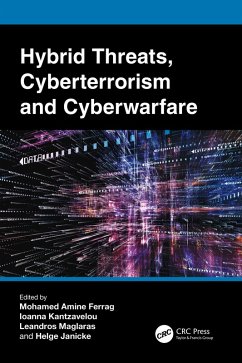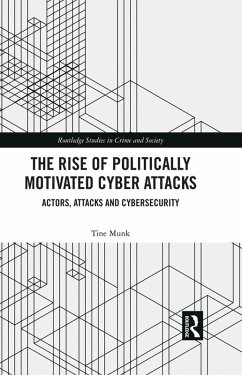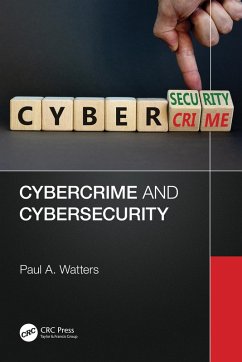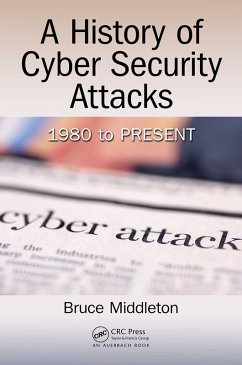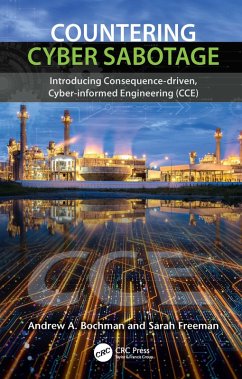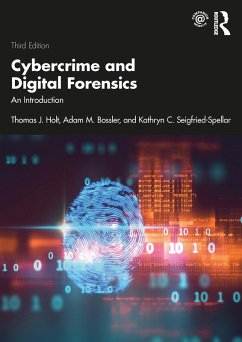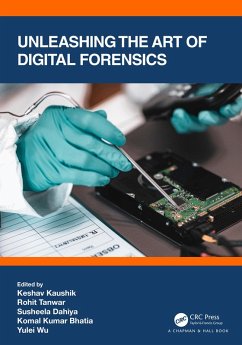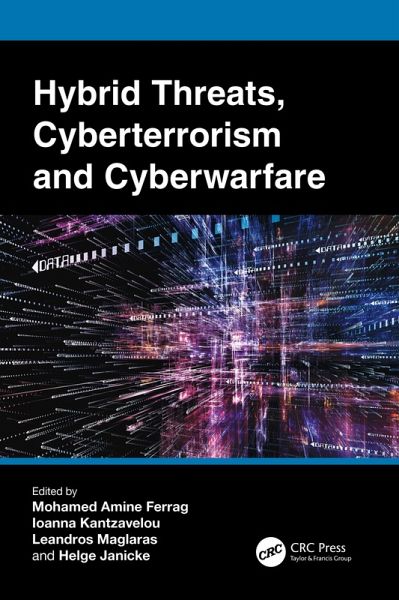
Hybrid Threats, Cyberterrorism and Cyberwarfare (eBook, PDF)
Versandkostenfrei!
Sofort per Download lieferbar
47,95 €
inkl. MwSt.
Weitere Ausgaben:

PAYBACK Punkte
24 °P sammeln!
Nowadays in cyberspace, there is a burst of information to which everyone has access. However, apart from the advantages the internet offers, it also hides numerous dangers for both people and nations. Cyberspace has a dark side, including terrorism, bullying, and other types of violence. Cyberwarfare is a kind of virtual war that causes the same destruction that a physical war would also do.A hybrid threat is an umbrella term encompassing a wide variety of existing adverse circumstances and actions, such as terrorism, migration, piracy, corruption, ethnic conflict, etc., and is not exclusivel...
Nowadays in cyberspace, there is a burst of information to which everyone has access. However, apart from the advantages the internet offers, it also hides numerous dangers for both people and nations. Cyberspace has a dark side, including terrorism, bullying, and other types of violence. Cyberwarfare is a kind of virtual war that causes the same destruction that a physical war would also do.
A hybrid threat is an umbrella term encompassing a wide variety of existing adverse circumstances and actions, such as terrorism, migration, piracy, corruption, ethnic conflict, etc., and is not exclusively a tool of asymmetric or non-state actors, but can be applied by state and non-state actors alike. 'Cyberconflict' and 'cyberwar' serve as examples of the use of new technologies within the scope of hybrid threats. Cyberwar basically refers to a sustained computer-based cyberattack by a state against the information technology (IT) infrastructure of a target state. On the other hand, cybersecurity is a major factor that shapes productivity and efficiency of the modern industry in both technical and economic terms.
The book discusses and analyses current posture of cyberterrorism, cyberwarfare, and hybrid threats-sector-specific cyberattacks that have the form of cyberterrorism and represents the recent actions that members of the European Union (EU), the United States, and other nations have taken in order to strengthen their systems against such attacks. There has never been a higher risk of a major catastrophe as a result of the rise in offensive cyberactivity, particularly the possibility of cyber-physical strikes against critical services. Recent cyberattacks against critical infrastructure, along with the continuous migration crisis, have been the main driving forces that led to the decision to publish this book.
A hybrid threat is an umbrella term encompassing a wide variety of existing adverse circumstances and actions, such as terrorism, migration, piracy, corruption, ethnic conflict, etc., and is not exclusively a tool of asymmetric or non-state actors, but can be applied by state and non-state actors alike. 'Cyberconflict' and 'cyberwar' serve as examples of the use of new technologies within the scope of hybrid threats. Cyberwar basically refers to a sustained computer-based cyberattack by a state against the information technology (IT) infrastructure of a target state. On the other hand, cybersecurity is a major factor that shapes productivity and efficiency of the modern industry in both technical and economic terms.
The book discusses and analyses current posture of cyberterrorism, cyberwarfare, and hybrid threats-sector-specific cyberattacks that have the form of cyberterrorism and represents the recent actions that members of the European Union (EU), the United States, and other nations have taken in order to strengthen their systems against such attacks. There has never been a higher risk of a major catastrophe as a result of the rise in offensive cyberactivity, particularly the possibility of cyber-physical strikes against critical services. Recent cyberattacks against critical infrastructure, along with the continuous migration crisis, have been the main driving forces that led to the decision to publish this book.
Dieser Download kann aus rechtlichen Gründen nur mit Rechnungsadresse in A, B, BG, CY, CZ, D, DK, EW, E, FIN, F, GR, HR, H, IRL, I, LT, L, LR, M, NL, PL, P, R, S, SLO, SK ausgeliefert werden.




